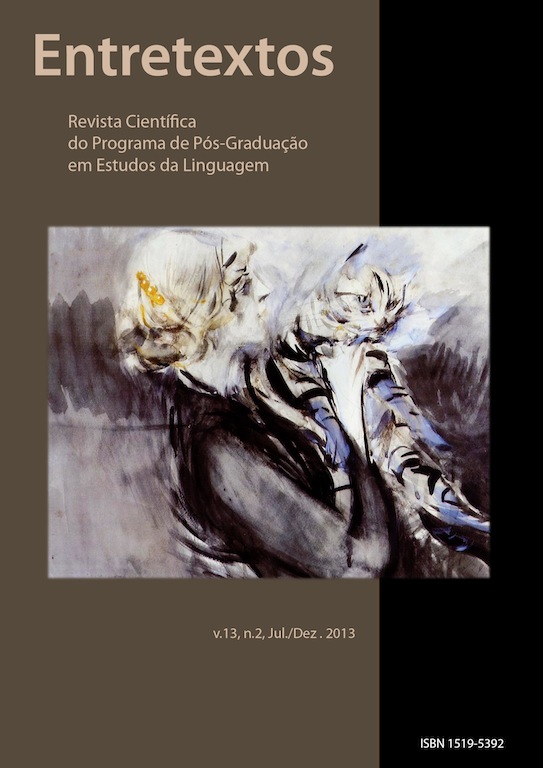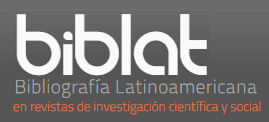The Law 11.645/08 and its approach in the textbooks of elementary school
DOI:
https://doi.org/10.5433/1519-5392.2013v13n2p33Keywords:
Law 11.645/08, Textbooks, Teaching portuguese languageAbstract
The Law 11.645/2008 alters the Law 9.394/1996, modified by the Law 10.639/2003 which establishes the guidelines and bases of the national education, to include in the official curriculum of the educations system mandating of the theme " african-Brazilian and indigenous History and culture". This implies the need to address the issue in question in the teaching of all the subjects in the curriculum of basic education, which includes primary and secondary education. As a result, this issue also appears in the textbook, since it is one of the instruments most used by teachers and students in the processes of teaching and learning. Accordingly, with the present study, we investigate whether this law is being addressed and how this is occurring in the Portuguese textbooks. Our corpus analysis consists of three Portuguese textbooks intended for the 6th year of elementary school, two of them published in 2009, after the law came into force, and 1 of them in 2002, period that precedes both Law 10.639/2003 and Law 11.645/2008. As methodological support, we use the quantitative method to verify the presence of texts whose theme determined by Law is contemplated. Then the qualitative method helped us to examine the texts in relation to the origin and the ways of approaching the topic in question, from mainly the theoretical support of Santomé (2009) and Marcuschi (2005). Thus, we find that the texts in the textbooks examined address superficial and minimally the history and culture of African descent and indigenous.
Downloads
References
BRASIL. Parâmetros Curriculares Nacionais: terceiro e quarto ciclos do Ensino Fundamental – Língua Portuguesa. Brasília: MEC; SEF, 1998.
BRASIL. Ministério da Educação. Guia de livros didáticos PNLD 2011: Língua Portuguesa / Ministério da Educação. — Brasília : MEC, 2010.
BRASIL. Lei nº 10.639 de 09 de janeiro de 2003. Disponível em: http://www.planalto.gov.br/ccivil_03/Leis/2003/L10.639.htm, acesso em 10 de julho de 2009.
BRASIL. Lei nº 11.645 de 10 de março de 2008. Disponível em: http://www.planalto.gov.br/ccivil_03/_Ato2007-2010/2008/Lei/L11645.htm
BRASIL. Lei nº 9.394 de 20 de dezembro de 1996. Disponível em: http://www.planalto.gov.br/ccivil_03/leis/l9394.htm
BRASIL. Lei nº 11.654 de 15 de abril de 2008. Disponível em: http://www.planalto.gov.br/ccivil_03/_Ato2007-2010/2008/Lei/L11654.htm
CANDAU, Vera Maria. Direitos humanos, educação e interculturalidade: as tensões entre igualdade e diferença. Revista Brasileira de Educação, v.13, n. 37 jan/abr. 2008.
COSTA, Cibele Lopresti et al. Para viver juntos: português, 6º ano. São Paulo: Edições SM,2009.
FRANCO, Adenize Aparecida. Aplicação da lei nº 11.645/08 em alguns livros de língua Portuguesa e literatura do ensino médio. In: CONGRESSO DE LEITURA DO BRASIL,17., 2009, Campinas. Anais ... Campinas, SP,: ALB, 2009. Disponível em: http://www.alb.com.br/portal.html. Acesso em: 8 dez. 2009.
GATTI JR, Décio. A escrita escolar da História: livro didático e ensino no Brasil (1970- 1990). Bauru, SP: Edusc, 2004.
GOULARTE, Raquel da Silva. Os gêneros textuais em livros didáticos de português: em busca do segredo da Esfinge. 2012. 152 fl. Dissertação (Programa de Pós-Graduação em Letras) – Universidade Federal de Santa Maria, Santa Maria, 2012.
MARCUSCHI, Luiz Antônio. Compreensão de texto: algumas reflexões. In: DIONÍSIO, Ângela Paiva;BEZERRA, Maria Auxiliadora. O livro didático de português: múltiplos olhares. Rio de Janeiro: Lucerna, 2005.
Downloads
Published
How to Cite
Issue
Section
License
Entretextos adota a Licença Creative Commons Attribution 4.0 International, portanto, os direitos autorais relativos aos artigos publicados são do(s) autor (es).
Sob essa licença é possível: Compartilhar - copiar e redistribuir o material em qualquer suporte ou formato. Adaptar - remixar, transformar, e criar a partir do material, atribuindo o devido crédito e prover um link para a licença e indicar se mudanças foram feitas.




















